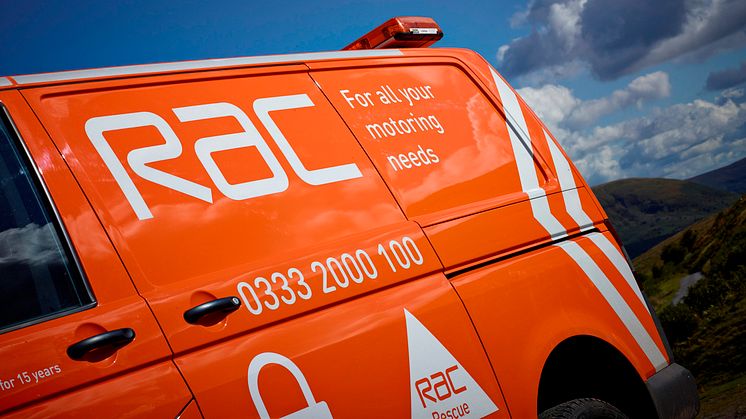
Press release -
Will new speed cameras for variable speed limit sections be used by police for more rigorous enforcement across M-way network?
RAC urges Government to revisit 80mph speed trial
New speed cameras commissioned by the Highways Agency for variable speed limit ‘smart’ motorway sections may be used by the police to enforce 70mph on a more widespread basis, warns the RAC.
The HADECS3 (Highways Agency Digital Enforcement Camera System) cameras are designed to enforce speeds on the motorways that are set up to use the hard shoulder permanently or temporarily as a running lane, but the police could choose to use the new verge-mounted grey cameras, which can monitor all four lanes of traffic, on normal stretches of motorway.
The cameras are a replacement for the gantry-mounted HADECS2 which are currently used to enforce variable speed limits. These cameras, however, require white lanes on the road, whereas the new model does not.
RAC technical director David Bizley said: “We know that enforcement is needed on existing managed motorways with variable speed limits when the limit is set below the national speed limit of 70 mph. The new generation of smart motorways with all lanes running and no hard shoulder have far fewer gantries so enforcement of variable speed limits requires verge-mounted cameras such as HADECS3.
“Enforcement is a police responsibility and by installing HADECS3, the Highways Agency is providing the means by which the police can enforce the speed limits. Most forces with motorway responsibilities do not use permanent gantry-mounted cameras on managed motorways to enforce the national 70 mph speed limit but at least one force (Kent) has signalled its intention to do so. This may reinforce the belief held by a majority of motorists that many speed cameras are more about raising money than they are about improving road safety.
“Static Gatso-style speed cameras have become a regular fixture on our roads and are normally located in accident black-spots for safety reasons rather than being used for general speed limit enforcement. One of the key concerns about static speed cameras is there potential to create a dangerous ‘stop start’ driving style caused by motorists suddenly slowing down when they spot them.
“This is often seen on existing managed motorways with some drivers exceeding the limit between gantry-mounted enforcement cameras and braking sharply as they approach the next gantry. No doubt this will also be the case with verge-mounted HADECS3 cameras. One might expect this behaviour to lead to accidents though we are unclear whether the evidence supports this. The existing HADECS2 cameras require white line markings on the road which are also known to cause motorists to brake so their removal might possibly reduce the risk of accidents.
“The decision not to paint these new cameras yellow may possibly be influenced by a desire to discourage this ‘stop start’ behaviour, but there can be no doubt that motorists will soon learn where to expect cameras regardless of their colour.
80mph trial
“We have been supportive of trialling an 80mph speed limits on some sections of motorway where construction and usage patterns are such that the benefits to users would offset any detrimental safety or environmental impact. Unfortunately, the Government has stated there are now no plans to do such a trial which is disappointing.
“If the new HADECS3 cameras are to be used more generally we think that this will result in better adherence to speed limits. One of the objections to an 80mph limit was that motorists would be more likely to travel at 90mph or more. But with better enforcement, it would be appropriate to revisit the 80mph motorway debate given that the majority of motorists support raising the speed limit on motorways.
“The RAC Report on Motoring 2013 voiced drivers’ frustrations that, despite Government announcements some time ago of plans for trialling of an 80mph limit so that the benefits and disadvantages could be quantified, nothing has happened to date and there are real doubts as to whether the current ministers have the will to proceed.
“Only 20% of motorists surveyed said that the current 70mph motorway speed limit should never be broken and 65% of motorists admit to breaking this limit while 92% of all drivers consider themselves to be law-abiding.”
Topics
Notes to Editors
About the RAC
First formed in 1897, the RAC has been looking after the needs of its members and championing the interests of drivers for more than 120 years.
Today it has more than eight million members and is one of the UK’s most progressive motoring organisations, providing services for both private and business motorists. Whether it's roadside assistance, insurance, buying a used car, vehicle inspections and checks, legal services or up-to-the-minute traffic and travel information – the RAC offers a solution for all motoring needs. The RAC is committed to making motoring easier, safer, more affordable and more enjoyable for drivers and road users.
The RAC is the motorist’s champion and campaigns to support the interests of its members and UK drivers at a national level. This includes voicing concerns about the increasing cost of motoring, particularly the price of fuel and the high level of tax levied on it, advancing levels of road safety, and supporting the needs of all drivers, from young to old.
The RAC’s annual Report on Motoring – first published in 1989 – is one of a kind and provides a clear insight into the concerns and issues facing today’s motorists.
For the very latest news on UK fuel prices, check RAC Fuel Watch. It provides a comprehensive guide to the latest UK unleaded petrol and diesel prices – both at the wholesale level and at the pump - and tracks these prices daily to help drivers check if the price they pay to fill up is a fair one.

